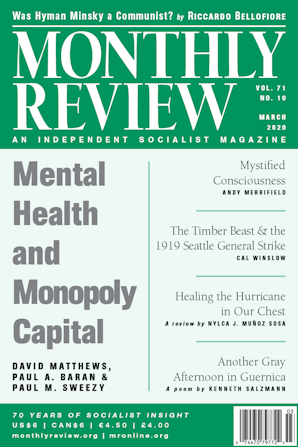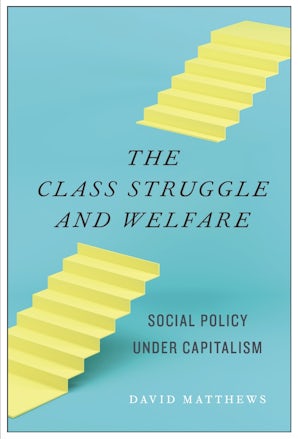Also in this issue
Books by David Matthews
The Class Struggle and Welfare
by David Matthews
Article by David Matthews
- Disability and Welfare under Monopoly Capitalism
- Health Care for Profit (Not Health): A Sick System
- Capitalism and Mental Health
- The Working-Class Struggle for Welfare in Britain
- The Struggle for Shelter: Class Conflict and Public Housing in Britain
- The Battle for the National Health Service: England, Wales, and the Socialist Vision
- UK Monopoly Capitalism: Applying a North American Brand to Britain


